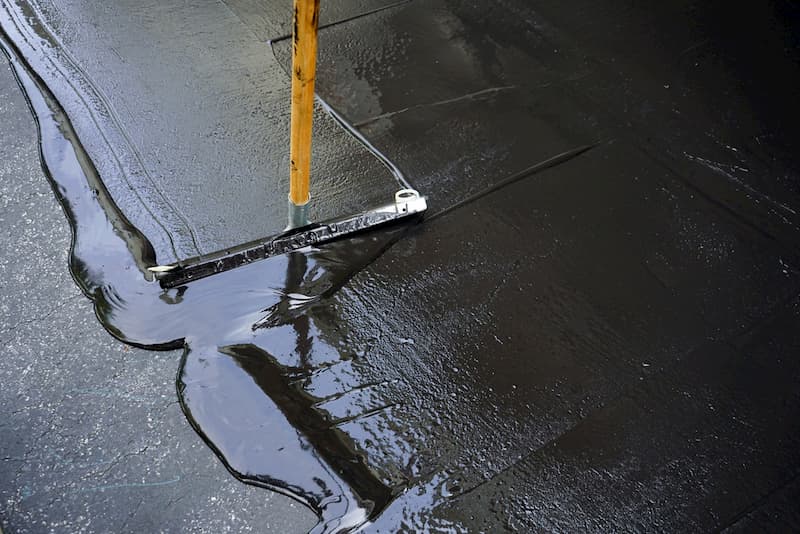Cold Mix Asphalt Vs. Hot Mix Asphalt: Which Is Right for You?

Composition Distinctions
Cold mix and hot mix asphalts differ dramatically in their composition, with unique features that impact their performance and applications. Cold mix asphalt is created by emulsifying the asphalt binder with water and an emulsifying representative prior to blending it with aggregate. This method enables the asphalt to be convenient at reduced temperature levels, making it perfect for momentary repairs and for use in chillier weather. Warm mix asphalt, on the various other hand, is made at heats, normally in between 300-350 ° F, which aids to accomplish much better compaction and an extra sturdy last item. The hot mix asphalt manufacturing process involves heating the aggregate and asphalt binder separately before combining them at the asphalt plant.
In addition, cool mix asphalt often tends to be much less thick and a lot more versatile than hot mix asphalt. This flexibility makes it better suited for locations with greater degrees of motion, such as driveways or roads with hefty website traffic. On the other hand, warm mix asphalt is understood for its high toughness and resistance to rutting and splitting, making it a favored choice for highways and high-traffic roadways where durability is important.
Setup Process Differences
The procedure of installing chilly mix and warm mix asphalt shows noteworthy variations in their treatments and requirements. In comparison, warm mix asphalt necessitates a much more sophisticated installment procedure. Due to the heating demands, warm mix asphalt installations are usually carried out by specialists with specific tools, guaranteeing a more long-term and structurally sound outcome.
Resilience and Durability Variables
When thinking about asphalt choices, resilience and long life are vital aspects to evaluate for lasting sidewalk performance. Warm mix asphalt (HMA) is understood for its remarkable durability and durability.
In terms of durability, HMA generally outperforms CMA as a result of its exceptional toughness and resistance properties. HMA sidewalks have a longer solution life, needing much less regular fixings and maintenance, which can convert to cost financial savings over time. In addition, HMA pavements are extra quickly personalized to satisfy particular task demands, even more boosting their toughness.
Cost Considerations
Taking into consideration the economic effects is a critical facet when reviewing the selection in between hot mix asphalt (HMA) and cold mix asphalt (CMA) for pavement tasks. While the first This Site price of warm mix asphalt is normally greater than that of chilly mix asphalt, HMA typically offers a more cost-effective solution in the lengthy run due to its remarkable check my blog toughness and durability.
In addition to product prices, it's vital to think about the expenses linked with setup and maintenance when contrasting HMA and CMA. HMA normally needs specialized tools and knowledgeable labor for proper setup, which can affect total task expenses. Conversely, CMA is easier to function with and can frequently be used using less complex methods, potentially decreasing installation expenditures. Ultimately, the choice between click to investigate HMA and CMA need to take right into account not simply the preliminary cost however also the lasting financial effects to identify one of the most affordable alternative for the particular sidewalk project.
Environmental Effect Contrast
Contrast of the environmental effects between hot mix asphalt (HMA) and cold mix asphalt (CMA) reveals distinct distinctions in sustainability techniques. HMA manufacturing calls for high temperature levels, leading to boosted energy usage and greenhouse gas emissions.
Furthermore, the usage of CMA frequently entails reusing existing asphalt sidewalk, advertising resource conservation and lowering the quantity of waste sent out to garbage dumps. By opting for CMA over HMA, roadway construction tasks can contribute positively to ecological preservation efforts.
Verdict
In conclusion, the selection between cool mix asphalt (CMA) and hot mix asphalt (HMA) relies on various aspects such as make-up, installation procedure, durability, durability, price, and environmental effect. cold mix asphalt. While CMA provides a fast and cost-efficient option for small repair work, HMA makes sure premium resilience and long life for rush hour areas. Think about these variables meticulously to determine which kind of asphalt is the ideal selection for your paving needs

Thinking about the economic implications is a critical element when examining the option in between warm mix asphalt (HMA) and cold mix asphalt (CMA) for sidewalk tasks. While the initial expense of warm mix asphalt is generally greater than that of cool mix asphalt, HMA frequently supplies an extra cost-effective service in the lengthy run due to its premium durability and longevity. asphalt patch repair.Contrast of the ecological influences in between warm mix asphalt (HMA) and cold mix asphalt (CMA) reveals distinct distinctions in sustainability techniques.In verdict, the selection in between cool mix asphalt (CMA) and warm mix asphalt (HMA) depends on numerous factors such as composition, installation process, resilience, longevity, cost, and environmental effect